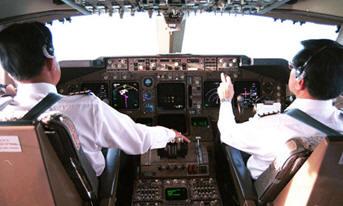|
|||||||||||||||||
|
|
|
|||
|
Air Line Pilots
Association Calls On New Airline Pilot Rest Rules By Bill Goldston |
||||
 |
July 5, 2011 - The Air Line Pilots Association, Int’l
(ALPA), submitted supplemental comments to the Federal
Aviation Administration (FAA) urging the regulator to
dismiss groundless stall tactics by some in industry and
issue the flight and duty time regulations and minimum
rest requirements for airline pilots that are urgently
needed to ensure the safety of air transportation.
“Over the past two years, the FAA, the airlines, and
airline employees have joined together in a tremendous
effort to develop flight- and duty-time regulations and
minimum rest requirements for airline pilots that are
based on sound science” |
|||
|
“Over the
past two years, the FAA, the airlines, and airline employees
have joined together in a tremendous effort to develop flight-
and duty-time regulations and minimum rest requirements for
airline pilots that are based on sound science,” said Capt. Lee
Moak, ALPA’s president. “No justification exists for delaying
the result of this unprecedented collaboration when new rules
are needed now to safeguard passengers, crews, and cargo.”
In its
supplemental comments, ALPA cited the federal law that mandates
that the FAA issue a final flight limitation rule by August 1,
2011, and emphasized that any delay would be in violation of the
will of Congress and of the American people.
ALPA
underscored in its submission that issuing a regulation now
would not preclude airlines from incorporating new science into
Fatigue Risk Management Programs as it becomes available. If
future science were to warrant amendment of the regulation, an
established mechanism exists to request such a review.
In
addition, the world’s largest pilots union highlighted the
provisions in the proposed regulations that provide the
Department of Defense (DOD) with flexibility for charter
operations that move troops and equipment vital to the national
defense. Through these provisions, the use of Fatigue Risk
Management Programs, and the installation of pilot rest
facilities on DOD charter aircraft, only a small percentage of
current DOD flying would require adjustment under the proposed
regulations. |
||||

